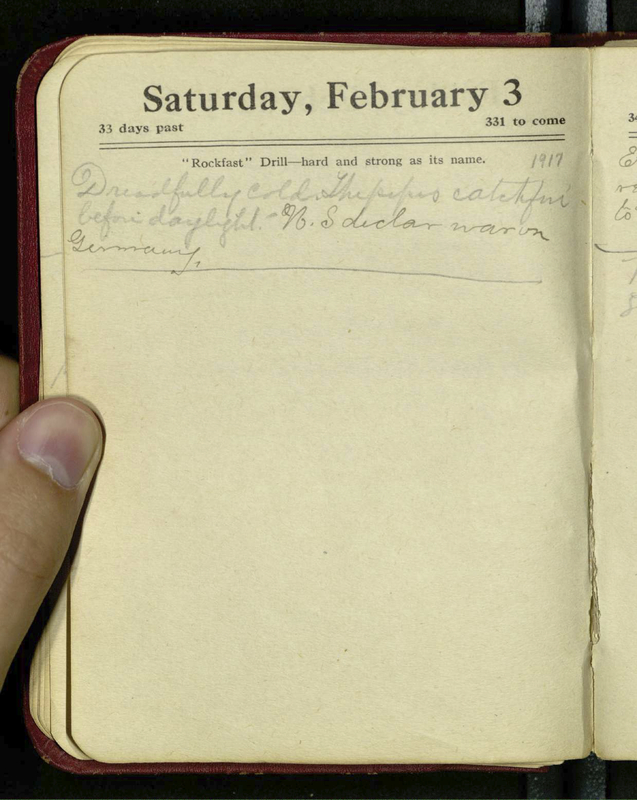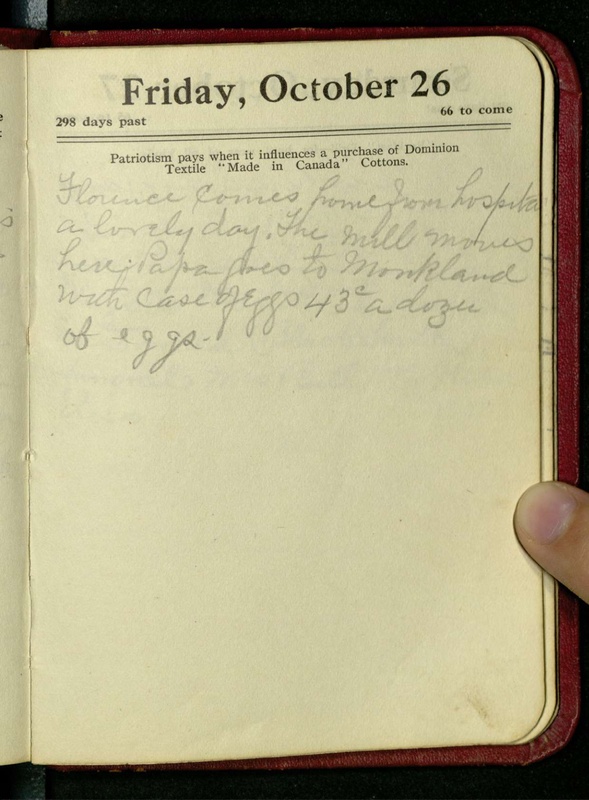Global Events & Local Connections
As historical global events took place throughout the timeline of McDonald’s dairy, one appeared most prevalent. This set of diaries covers the time periods featuring the final stages and aftermath of World War I as well as the Great Influenza. An awareness of these global events can be detected in McDonald's entries. Similar to the recordings of sickness, mundane activities flank the accounts of the war in a stark contrast. McDonald gives as much time to the major political updates of the day as she does to the price of local produce, if not less. It is likely that McDonald was disconnected from the day-to-day wartime news, given her rural context and the delayed spread of news at that time. Her accounts of these events are frank and apparently emotionless, too.
We intend to contrast these mentions of global events - most notably, WWI and its outcomes - from the mentions of local travel and local goings-on. McDonald mentions many local people and families by name in her diary entries, and describes several trips to neighbouring areas. She spends more time, on the whole, noting local deaths, births, prices, and activities than recording international politics. Her diary represents a unique combination of awareness of place in an evolving international order and the primacy of awareness of local place and local details.





